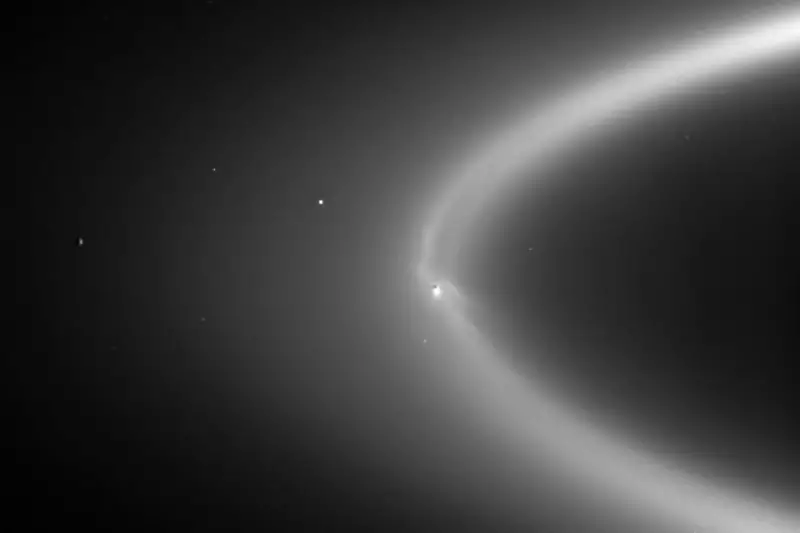
In a discovery that could reshape our understanding of life in the cosmos, scientists have confirmed that Saturn's icy moon Enceladus contains all six fundamental building blocks necessary for life as we know it.
The Missing Piece of the Extraterrestrial Puzzle
Recent analysis of data from NASA's Cassini spacecraft has revealed the presence of phosphorus in the form of phosphates within the moon's subsurface ocean. This crucial element completes the set of six essential elements required for biological organisms: carbon, hydrogen, nitrogen, oxygen, phosphorus, and sulphur.
"This is the final piece of the puzzle," explained Professor Frank Postberg of Freie Universität Berlin, who led the research. "With the discovery of phosphates, Enceladus now meets the most stringent requirements for habitability."
An Ocean World Unlike Any Other
Enceladus, once considered just another icy moon, has emerged as one of the most fascinating worlds in our solar system. Beneath its frozen crust lies a global saltwater ocean that regularly erupts through cracks in the ice, sending plumes of water vapour and ice particles into space.
These spectacular geysers provided Cassini with direct samples of the hidden ocean's composition during its mission between 2004 and 2017. The spacecraft's Cosmic Dust Analyzer collected data that has taken years to fully interpret.
Concentrations Beyond Earth's Oceans
What makes this discovery particularly remarkable is the concentration of phosphorus. The research indicates phosphate levels in Enceladus's ocean could be at least 100 times higher than in Earth's oceans.
"This level of abundance suggests that phosphorus is readily available for potential biological processes," Professor Postberg noted. "It's not just present – it's potentially abundant enough to support life."
Why Phosphorus Matters So Much
Phosphorus plays several vital roles in biological systems:
- It forms the backbone of DNA and RNA molecules
- It's essential for cellular energy transfer (ATP)
- It's a key component of cell membranes
- It helps build bones and teeth in complex organisms
Without phosphorus, life as we understand it simply cannot exist. Previous studies had confirmed the presence of the other five essential elements, leaving phosphorus as the final hurdle in establishing Enceladus's potential habitability.
The Search for Life Continues
While this discovery doesn't prove life exists on Enceladus, it removes the last major chemical barrier that scientists had identified. The moon now presents the most complete chemical recipe for life beyond Earth ever found.
Future missions specifically designed to search for biological signatures are now being planned by space agencies worldwide. These would likely include more sophisticated instruments capable of detecting complex organic molecules or even microbial life in the water plumes.
As Professor Postberg concluded: "We now know that all the necessary ingredients are there, waiting in the deep. The question is no longer if the conditions are right for life, but whether life has actually taken advantage of these perfect conditions."





